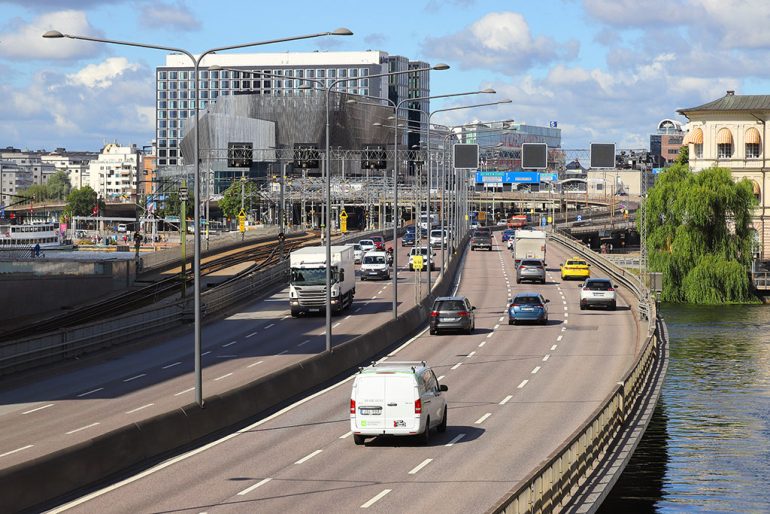
Stockholm’s decision to ban gasoline and diesel cars from a downtown commercial area in 2025 represents a shocking decision in Europe’s efforts to combat pollution and promote electric mobility. According to Lars Strömgren, the city council member for the Greens responsible for transportation, this move will mark the first complete ban on such vehicles in a European capital. The ban is set to cover a 20-block region that includes shops, pedestrian zones, and some residences, all aimed at mitigating pollution, reducing noise, and fostering the adoption of electric vehicles (EVs).
Strömgren emphasized the urgency of eliminating the harmful exhaust emissions generated by gasoline and diesel cars, underscoring that this initiative would establish the most ambitious low-emission zone to date. The primary objective is to establish an “environmental zone” where only electric vehicles will be permitted, albeit with exceptions for emergency vehicles and transportation services for individuals with disabilities.
Also, don’t forget that you can get discounted new car pricing with a free quote through qualified local dealer partners.
The decision to implement this ban was unveiled in the city’s 2024 budget, reflecting the environmentally-focused priorities of the left-leaning municipal government. Given their majority control of the council, the upcoming vote on November 23 is expected to be a mere formality. Strömgren expressed pride in this groundbreaking step, hinting at plans for the gradual expansion of the environmental zone during the first half of 2025.
The automotive industry is also responding to this transition. Taxi Stockholm, one of the city’s major cab companies, reported a rapid shift toward emission-free vehicles, with 30% of its fleet now comprised of electric vehicles, a significant increase from the previous year. This demonstrates that the industry is actively pushing forward with the adoption of cleaner technology.
However, not everyone is convinced that the plan will proceed smoothly. Critics, including Nike Örbrink from the opposition Christian Democrats, worry about the potential negative impacts on businesses and the hotel industry. Such concerns highlight the challenges associated with implementing such ambitious measures.
It’s worth noting that Stockholm is not the only European capital with green aspirations. Amsterdam, for instance, is aiming for a comprehensive transition to emissions-free transportation by 2030. Meanwhile, Paris has also set its sights on reducing pollution by banning older diesel cars and eventually gasoline cars, although it has faced resistance in the process. The bigger question remains for us here in the United States on our side of the pond – will we have similar bans in the near future? We can probably look to California for leading the ‘charge’ on that front.
In the grander context of global efforts to reduce emissions and combat climate change, Stockholm’s decision to ban gasoline and diesel cars from its downtown commercial district in 2025 may serve as a noteworthy sign of the future, where cities increasingly prioritize sustainability, electric mobility, and a cleaner urban environment across many large, populous countries.
Source: Associated Press